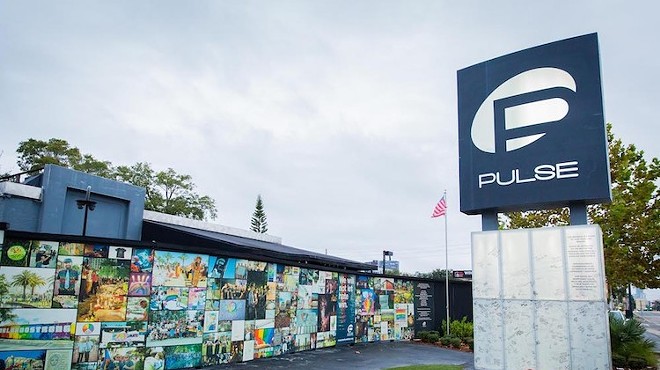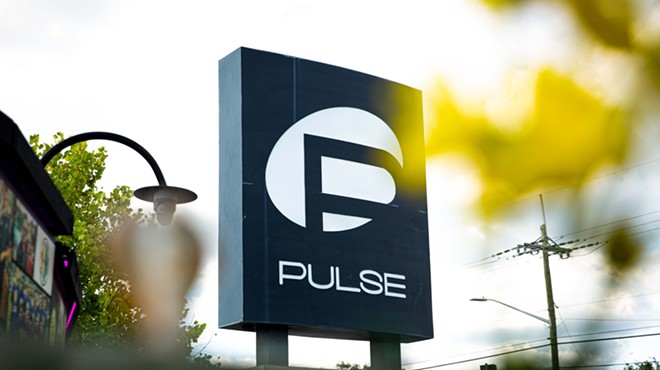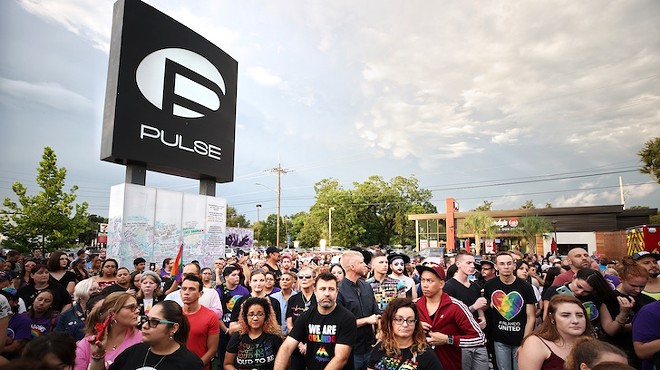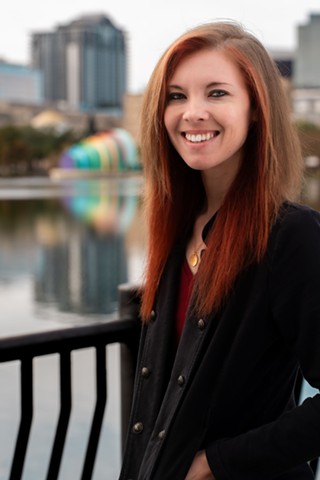UPDATE: In further communications regarding the return of individual monetary donations, the OnePulse Foundation has changed course. Read our story about emails received by donors who wrote to the foundation to request refunds.
The OnePulse Foundation will issue refunds to people who donated to the organization for a planned museum project. The nonprofit officially scrapped that controversial plan on Friday, amid a wave of changes to the organization.
The museum was proposed as a way to honor the victims of the 2016 mass shooting at Orlando’s Pulse nightclub, which killed 49 people and wounded over 50.
It was planned by the OnePulse Foundation — formed just one month after the shooting by one of the club’s owners — as a separate, multimillion-dollar building to complement a permanent memorial.
But after public outcry over the project from Pulse survivors and a decision by the city of Orlando last week to purchase the former Pulse property for a permanent memorial, OnePulse decided to give up on the museum idea.
“After careful consideration regarding the scope of our proposed projects, including conversations with victims’ families, survivors, and the local community, as well as unforeseen challenges, the onePULSE Foundation Board of Trustees has decided it is no longer feasible to move forward with the plan to develop a museum,” said foundation chairman Earl Crittenden in a statement. Crittenden resigned from his role as chairman last week, effective Oct. 31.
Deborah Bowie, executive director of OnePulse, first confirmed to WESH News in an exclusive interview Friday that their decision to give up on the museum means people who donated to OnePulse specifically for that project can get their money back.
“Frankly, right now, this community really needs to focus on the memorial. I think the board and the foundation understand that,” Bowie told the station.
But, in an emailed statement to Orlando Weekly, Bowie was less definitive on what this will or could actually look like. “The short answer is, we do not know yet,” she shared, in response to a potential return of funds. “It is important to remember there are two types of donations that have been made to the Foundation over the years: restricted and unrestricted gifts.”
Unrestricted gifts - those that aren't tied to any particular program or project - have already been used for the general operations of OnePulse over the past six years, Bowie clarified. All restricted gifts received to-date on the other hand, referring to those expressly tied to a specific program or project, "have been used appropriately and toward that specific donor intent," she explained.
“There have been a number of developments in recent days, and we are in the
process of reconciling our activities with this new reality,” Bowie added. “As soon as
we have a clearer picture of the new landscape, and our role in it, we will be able to better answer these and other questions more clearly.”
Scott Bowman, chief communications officer for OnePulse, said that anyone who has questions about their donation(s) can contact the organization by email at [email protected].
The Pulse museum project was first proposed years ago, with a whopping $45 million price tag when its design was first unveiled in 2019. The proposed plans included a reflecting pool and a set of 49 trees around the club in honor of those who died, but the foundation said earlier this year it would scale back plans after learning that the project could cost up to $100 million.
A group of Pulse survivors, victims’ families, and former patrons of the gay nightclub, collectively known as the Community Coalition Against a Pulse Museum, have been organizing against the project — and the nonprofit foundation — for years.
Survivors of the tragedy who have organized with the coalition have characterized the project as a way for OnePulse and the nightclub’s former club owners to profit off their pain.
“I don’t want someone sitting and gawking at a display of where my son was killed, while people who didn’t live through the tragedy make a profit from it,” Christine Leinonen, whose son Andrew and his boyfriend were killed at Pulse, told The Nation in 2022.
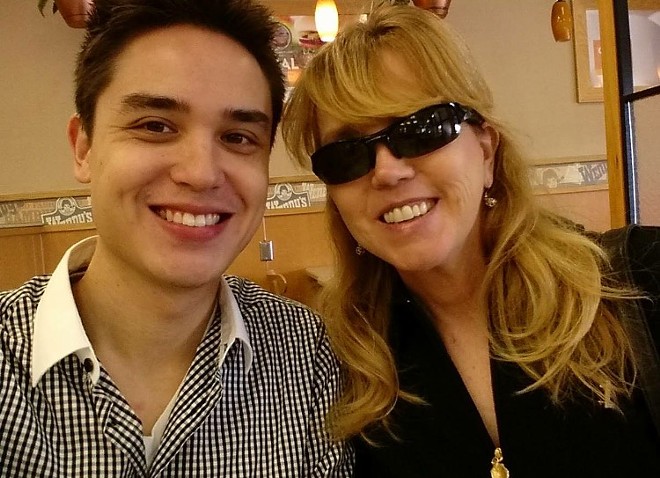
Barbara Poma, co-owner of the nightclub, founded OnePulse in 2016, about a month after the shooting. It was founded with the expressed intent of providing “immediate financial assistance” to affected victims and developing a permanent memorial to honor the lives lost, according to paperwork filed.
Poma and other executives for OnePulse have over the years drawn criticism for taking in six-figure salaries, while some survivors of the shooting continued to struggle with medical bills. As of Dec. 31, 2022, the foundation reported $7.2 million in total assets. The coalition of survivors critical of OnePulse have also called for an investigation into the Pulse property for a history of code violations that they believe hindered clubgoers' escape during the shooting.
Poma, who was vacationing in Cancun when the shooting occurred, resigned from her position as executive director of OnePulse last year. She left the organization entirely this spring. After years of back and forth over ownership of the Pulse property, where an interim memorial has been established, the three owners of the property — Barbara Poma, her husband Rosario Poma, and businessman Michael Panaggio — agreed to sell the property to the city of Orlando last week for $2 million.
The city plans to move forward with building a permanent memorial — something shooting survivors Maritza Gomez and Jorshua Hernández told Orlando Weekly should have happened years ago.
The coalition against the Pulse museum, which Gomez and Hernández are a part of, celebrated OnePulse’s announcement that they’d give up on the museum and return $3.5 million in funds allocated by Orange County for the project. As part of their announcement, the nonprofit said it will also be returning to the county a parcel of land purchased for the museum, which had cost $3.5 million.
"Now that the @onepulseorg's museum plans have been stopped, we are asking them PUBLICLY to shut their doors and fold," the coalition wrote in an Instagram post. "We are asking them to conduct and release a forensic audit, so we can see exactly how public dollars were spent. Remaining funds, should be donated to the City for the memorial and to survivors for their continued care."
OnePulse has not shared any intentions to dissolve the organization, nor its annual scholarship program created to honor the 49 killings. Bowie, the foundation's executive director, told WESH News the organization is still working on completing a Survivor's Walk, intended to connect the eventual Pulse memorial on South Orange Avenue to the Orlando Regional Medical Center three blocks from the Pulse property.
This post was updated after publication, on Monday afternoon, to include clarifying information from Deborah Bowie, executive director of OnePulse.
Follow us: Apple News | Google News | NewsBreak | Reddit | Instagram | Facebook | Twitter | or sign up for our RSS Feed

![OnePulse will return donations given for now-scrapped Pulse Orlando museum project [UPDATED]](https://media2.orlandoweekly.com/orlando/imager/u/blog/35393341/pulse.jpg?cb=1698855618)
